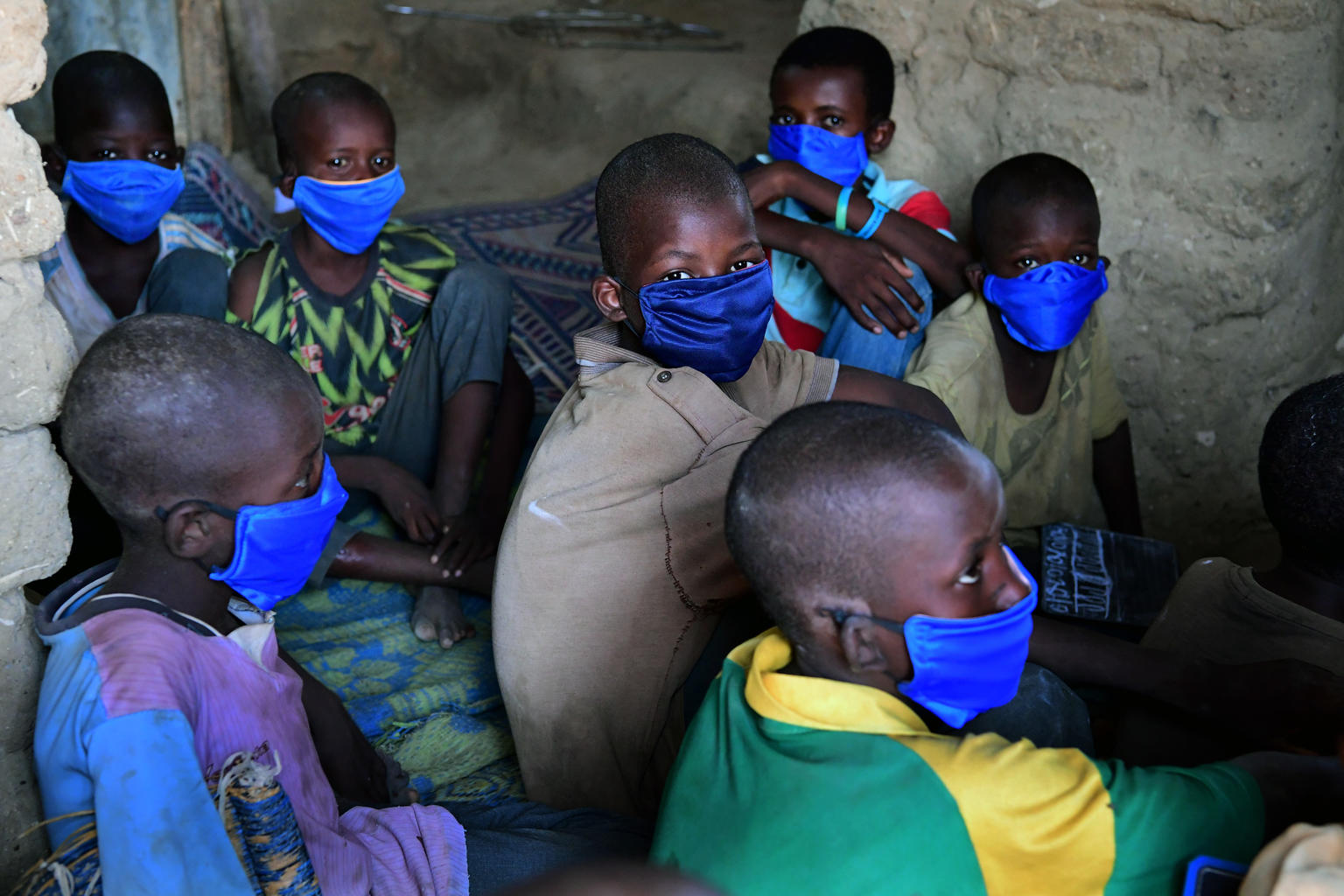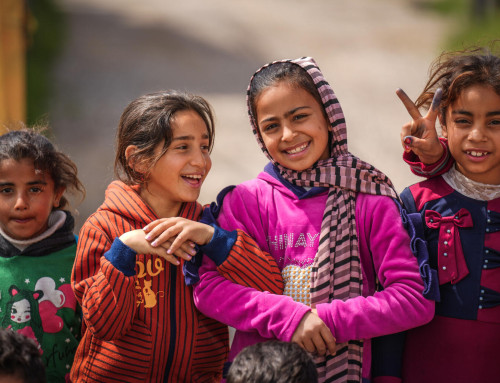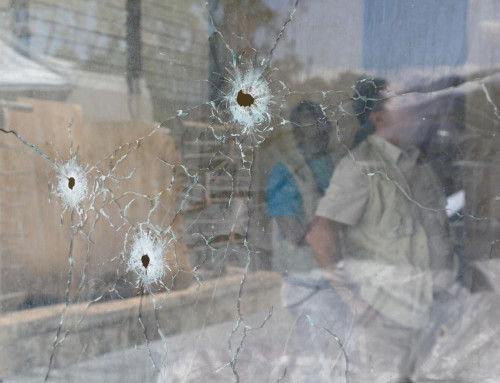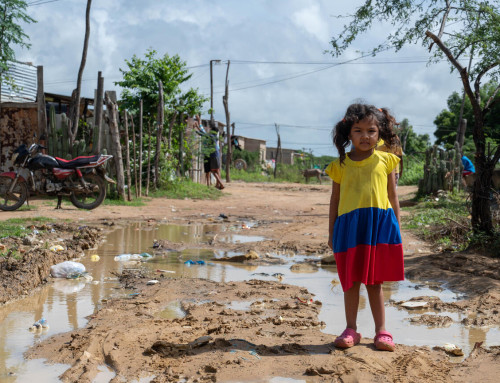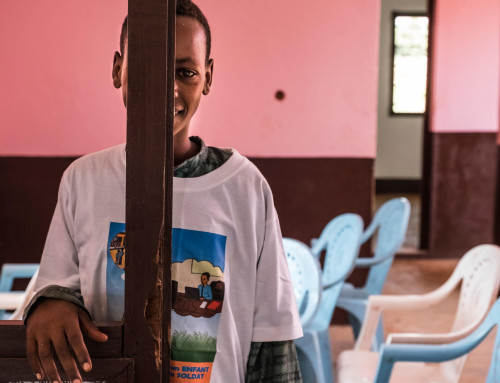Annual Report of the Special Representative of the UN Secretary-General for Children and Armed Conflict to the General Assembly
As the mandate on children and armed conflict marks its 25th anniversary, it is more urgent than ever to put the protection of conflict-affected children at the heart of the international agenda and, in particular, the COVID-19 response, highlighted the Special Representative of the Secretary-General for Children and Armed Conflict, Virginia Gamba, in her Annual Report to the General Assembly issued today.
The report, which covers the period from August 2020 to July 2021, emphasizes large scales of grave violations against children, with the recruitment and use, killing and maiming and the denial of humanitarian access being the most prevalent. Of particular concern is the ongoing killing and maiming of children by explosive weapons and remnants of war, including improvised explosive devices (IEDs), landmines and bombs.
“Member States must sign and implement existing international legal instruments pertaining to these weapons and promote mine clearance and mine risk education. More broadly, they must adopt and implement legislation criminalizing all violations against children as well as enhance accountability to end cultures of impunity and ultimately prevent the future occurrence of such crimes,” said the Special Representative.
Conflict-Affected Children at High Risk of Grave Violations Amid the COVID-19 Pandemic
The closure of schools and child-friendly spaces, as well as the loss of family income due to the COVID-19 pandemic increased children’s risk of being recruited and used, sexually abused, exploited, and forcibly married. The Special Representative emphasized that Member States must do their utmost to protect health care facilities as well as schools, with a specific focus on protecting girls’ education.
Despite the challenges posed by the pandemic, the United Nations on the ground managed to progressively adapt their working methods to continue child protection activities, including monitoring and reporting according to UN standards, as highlighted in the study Impact of the COVID-19 pandemic on violations against children in situations of armed conflict recently published by CAAC Office, .
“Conflict-affected children have been the most affected by the pandemic, hence their needs must be at the centre of any COVID-19 recovery plan. Child protection activities and services must be considered as lifesaving and in this regard, I call on Member States to continue to provide political support and substantial funding to ensure their continuity,” she stressed.
Securing Commitments and Building Partnerships
Despite the COVID-19 pandemic and related travel restrictions, the Special Representative continued to virtually engage with parties to conflict and to provide support to UN child protection actors on the ground which led to tangible progress for conflict-affected children. In 2020 alone, at least 35 new commitments by parties to conflict, such as command orders, roadmaps or updated workplans, mitigation measures during military operations or action plans, were signed or adopted.
Furthermore, continuous and active engagement with Member States, UN entities, international, regional, and sub-regional organizations, as well as civil society and academia, has reinforced partnerships and amplified advocacy efforts to end and prevent grave violations against children. For instance, the Special Representative and her Office continued to spearhead the Global Coalition for Reintegration of Child Soldiers, launched in 2018 together with UNICEF, which published three briefing papers in 2020.
25 Years of the Children and Armed Conflict Mandate
The report emphasizes that 2021 marks the 25th anniversary of UN General Assembly Resolution 51/77, which created the mandate of the Special Representative of the UN Secretary-General for Children and Armed Conflict. Its inception largely contributed to placing the issue of conflict-affected children at the heart of international efforts to ensure sustainable development and maintain global peace and security.
While the report highlights some of the progress achieved since the creation of the mandate, it also points out several areas where efforts must be enhanced to improve the protection of children in armed conflict. In particular, it stresses the importance of including dedicated child protection provisions and capacities in all relevant mandates of UN peacekeeping operations and special political missions. It also reaffirms the need to mainstream child protection issues in prevention activities and peace processes and the Special Representative called in this regard on all mediators to make full use of the Practical Guidance for mediators to protect children in situations of armed conflict, now available in all six UN languages.
Looking forward, the Special Representative highlighted key priorities to strengthen the impact of the Children and Armed Conflict mandate, in particular data analysis and management for early identification and response to prevent grave violations. The Special Representative stressed that the translation of child protection priorities into budgeting and staffing are necessary to support data analysis, management and the monitoring and reporting of grave violations against children. Furthermore, she emphasized that lessons learned and good practices will remain a strong focus of the Children and Armed Conflict Office in the coming years, with several studies and guidance documents currently undertaken on specific thematic issues.
“The 25th anniversary of the Children and Armed Conflict mandate must be seen as an opportunity for Member States to renew their commitment to protect boys and girls from hostilities and to effectively translate their promise into action, including by joining the Act to protect children affected by conflict campaign,” Special Representative Gamba concluded.
###
For additional information, please contact:
Fabienne Vinet, Communications Officer, Office of the Special Representative of the Secretary-General for Children and Armed Conflict
+1-212-963-5986 (office) / +1-917-288-5791 (mobile) / vinet@un.org
Follow us on Twitter and Facebook:
https://www.instagram.com/nochildreninwar/
www.twitter.com/childreninwar
www.facebook.com/childrenandarmedconflict

